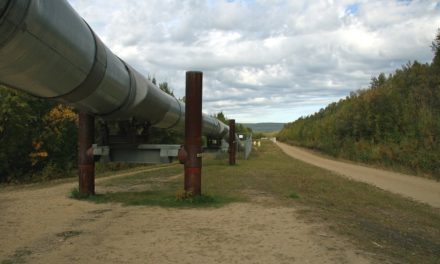
North Carolina Army National Guardsmen (NCNG) and local emergency services assist with the evacuation efforts in Fayetteville, N.C., on Friday, Oct. 08, 2016. Photo by U.S. Army National Guard Staff Sgt. Jonathan Shaw, 382nd Public Affairs Detachment. CC BY 2.0 via Wikimedia Commons
Hurricane Matthew left a trail of destruction in its wake after it moved north along the east coast. In addition to the high winds, heavy rains flooded towns and damaged thousands of homes. North Carolina was hit hard by the hurricane earlier this month, and the effects will be felt for a long time.
The state’s water supply could also be in danger, thanks to the flooding from Hurricane Matthew. The Tar Heel state is home to 2,100 hog farms, and they contain pits full of animal excrement, known as lagoons, that had been cleared from the farms. The rains inundated many of these farms, and the waste from the hogs as well as other farm animals was pulled across the state toward the ocean. Between those farms and the ocean are rivers, streams, and other sources of water used by residents.
“Whenever a storm like Hurricane Matthew causes flooding like this, there is always a worry that drinking water obtained from surface sources will be contaminated,” said Dr. Clifford A. Lipscomb, vice chairman and co-managing director of Greenfield Advisors. “North Carolina dealt with a similar problem after Hurricane Floyd, and the contamination caused problems along the coast.”
Following Hurricane Floyd, animal waste from farms located in the flooded areas made its way to the coast. Officials reported higher levels of nitrogen and phosphorous, as well as fish kills and algae blooms.
That was 17 years ago. Since that time, North Carolina bought out 42 hog farms located in the state’s flood plain. The state upgraded some lagoons and moved others away from the flood plain. However, not all of the hog farms that were in harm’s way were updated or moved. Even in the best conditions, hog farms pose a threat to nearby water sources. A 2015 survey found that water located near confined animal feeding operations (CAFOs) suggested that “overall poor sanitary quality of surface waters where swine CAFO density is high.”
When Hurricane Matthew hit, farms and lagoons were flooded, creating a potential environmental risk. It will be weeks before the full effect is known on the water sources near the farms as well as the land along North Carolina’s coast.
CAFOs pose other dangers to their surroundings beyond possible water contamination. Greenfield Advisors Chairman and Co-Managing Director Dr. John Kilpatrick earlier this year spoke in Hawaii about the issues that arise around CAFOs.
We will keep an eye on North Carolina and post about any updates to the possible contamination issues facing the state.





Recent Comments